University of Lethbridge alumna Mackenzie Kyfiuk (BTR ’24) is expanding the use of adaptive gaming equipment for recreation and rehab while working as a recreation therapist in the Tertiary Neuro Rehabilitation unit (Unit 58) at Foothills Medical Centre in Calgary.
Kyfiuk began her journey with Unit 58 during her four-month practicum placement in the Therapeutic Recreation program at the University. Her project incorporated the use of adaptive gaming equipment on the unit. She worked with Makers Making Change, an organization that works on achieving economic and social inclusiveness for all people with disabilities. As one of the seven GAME Checkpoint programs across Canada, Unit 58 provides accessible gaming spaces with gaming devices, assistive technology and trained professionals. They 3D print all adaptive aids for gaming. Adaptive gaming is about making gaming more accessible to everyone regardless of their cognitive capabilities.
“All it takes is a gaming console and then it can be expanded for each case – we can get anybody back to gaming,” says Kyfiuk.
The potential expansions include devices such as mouth joysticks, controllers that use voice commands for patients with blindness, foot controls for patients who are unable to use their hands and more. Kyfiuk and her colleagues use the game room’s 3D printer to assist in producing some of the adaptive gaming equipment such as a one-handed remote controller for a patient who lost the use of one hand. Recently, there have even been patients from other wings at the hospital, such as the burn wing, with injuries on their hands, who come to use the gaming room where the recreation therapists set up equipment that can be used hands-free. The goal is to get patients back to living as independently as possible, starting with adaptive gaming technology to allow for a return to gaming. The hope is for each patient to eventually not need to use these devices and be able to game independently. The gaming equipment does not have to be used for rehab, but it does have that capability. The main purpose of the room is enjoyment and fun, bringing joy to the patients.
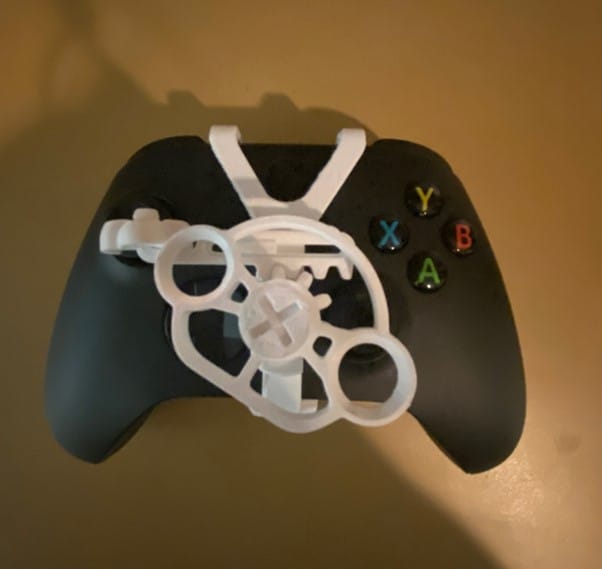
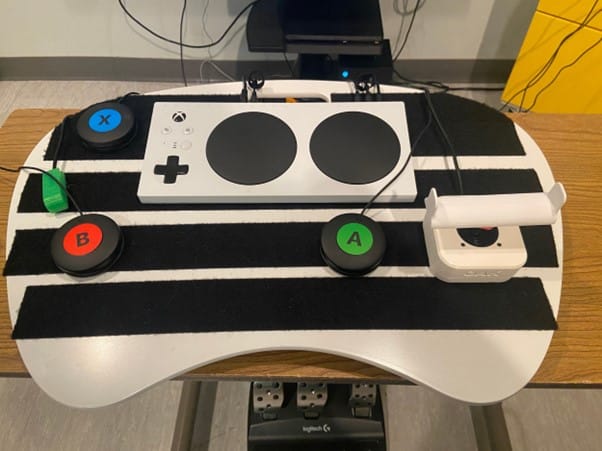
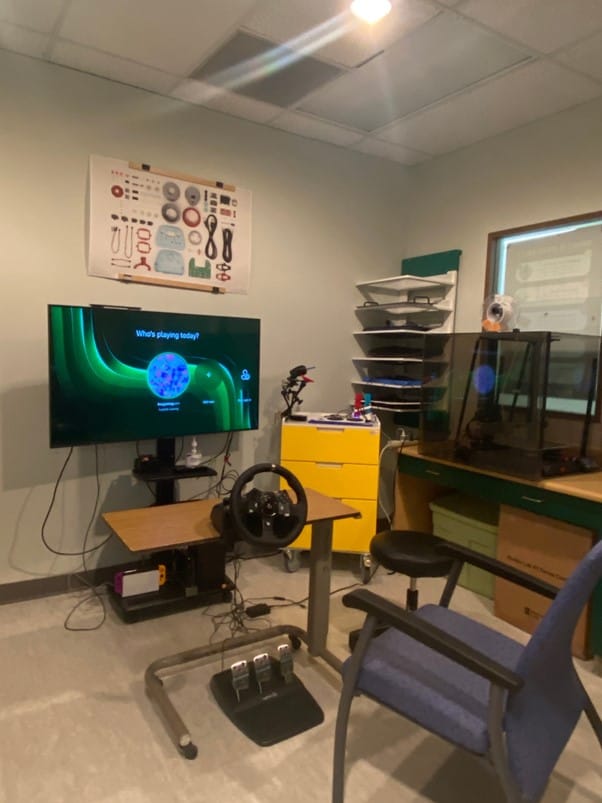
Unit 58 includes a variety of services, including physiotherapy, speech therapy and recreation therapy – all services work together towards rehabilitating patients diagnosed with neurologic injury or illness, such as stroke, brain injury or spinal cord injury. As a recreational therapist, Kyfiuk works with a variety of patients who have very different interests and recreational desires. Her focus is to get her patients back into the leisure activities they enjoy most.
“Every day is something different, whether I am in the woodshop, playing soccer or gaming. It is so cool assisting in returning people back to the leisure activities they enjoy,” says Kyfiuk.
She speaks passionately about her job, encouraging students to dive into the expansion and use of technology in recreation, if that is what is calling them.
“Everyone has a phone, and most people play games on their phones. Gaming is a huge leisure activity for youth and all people; it is an untapped resource for therapeutic recreation,” she says.
Mackenzie urges students who are interested in bringing adaptive gaming equipment to their units to contact Makers Making Change.
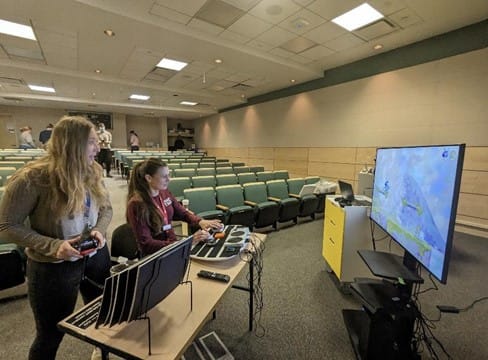
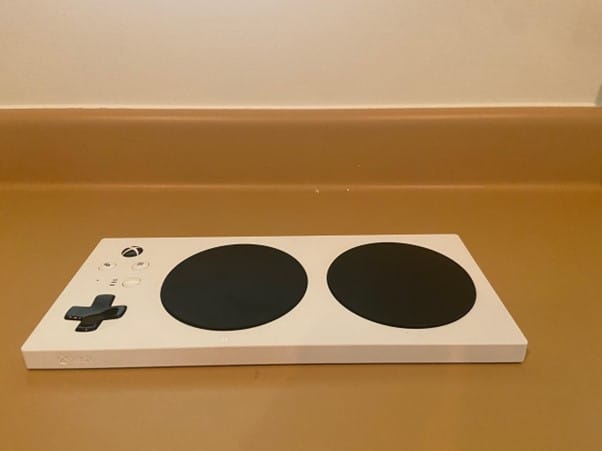
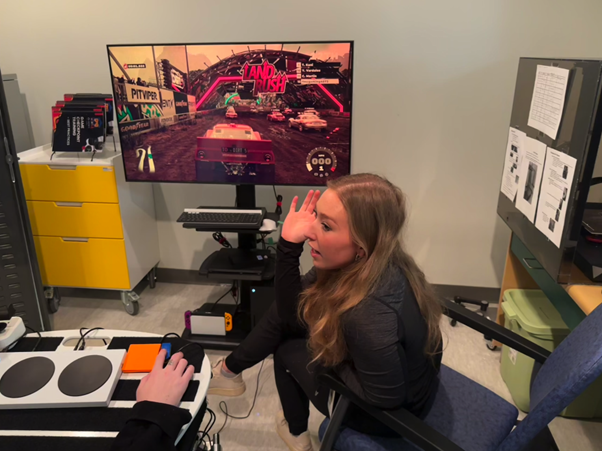
Testing the adaptive gaming equipment